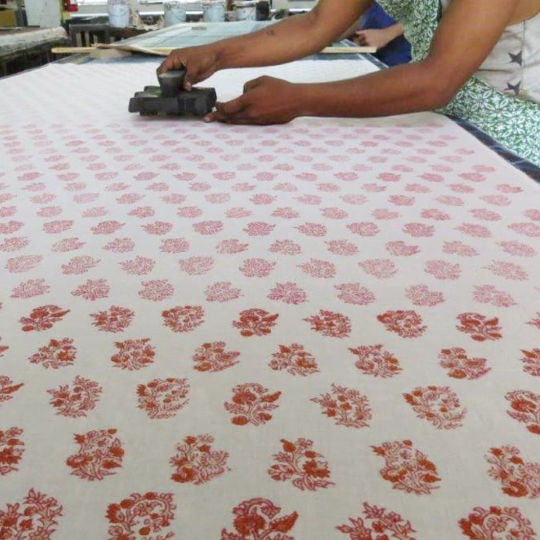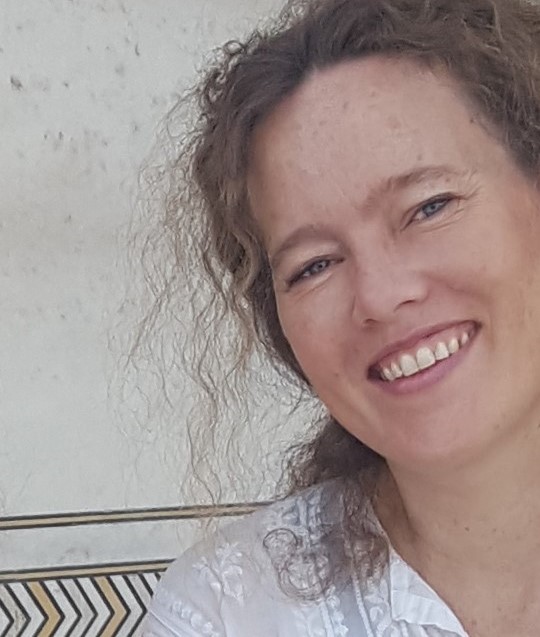About The Blockprint Tree
The Blockprint Tree is a Dutch based company started by Anne Ritsema van Eck.
Anne has a long-term relationship with unique and handmade fabrics. Ever since she was a child she was surrounded by beautiful textiles from all over the world, thanks to her mother, grandmothers and aunts. For many years Anne worked for Capsicum in Amsterdam, a shop in handmade, natural fabrics from India. Over the years she worked with many different types of textile handicraft such as ikat, blockprint, chikan embroidery, crewelwork and handweaving.
Moving forward with a company of her own she chose to commit to her favourite technique, block printing. ‘My goal is to bring to you some of India’s finest block printed fabrics, produced by hand. The fabrics are designed by me and made by some of the most skilled block makers and block printers of India.’ The designs are mostly a combination of traditional pattern and contemporary colours and design. Anne is inspired by nature and art, both European and Indian art.

About the name and the logo
The tree in the logo has a profound meaning to Anne. A tree is firmly rooted in the ground. The roots are often the size of the tree above ground. The ‘Tree of Life’ is a meaningful symbol that plays an important role in Indian design.
‘To me, the tree is a place that gives hope in spring, provides shadow in the summer, shows transition in autumn and a refined, still silhouette in winter. The family name of my paternal grandmother is Boom, Dutch for tree. She was the first person who invited me to create’ – Anne

About the makers
The people making our block printed items are completely dedicated to the preservation of the local art of block printing. They are part of a community of producers who believe sustainability is needed in order to preserve that tradition. Together they invested time, money and research into developing an eco-friendly textile park. They reduce the environmental impact of textile production by recycling 90 % of the water that is used. This is done by a plant that purifies the water. During the monsoon, rainwater is collected in large storage systems. Solar panels provide with electricity.
The working conditions of the craftspeople are taken very well care of in terms of fair wages, ergonomically designed workstations, proper lighting and ventilation. I‘ve had the opportunity to walk around in this textile park and was in awe of how beautiful everything was arranged. I’m happy we can work together.
